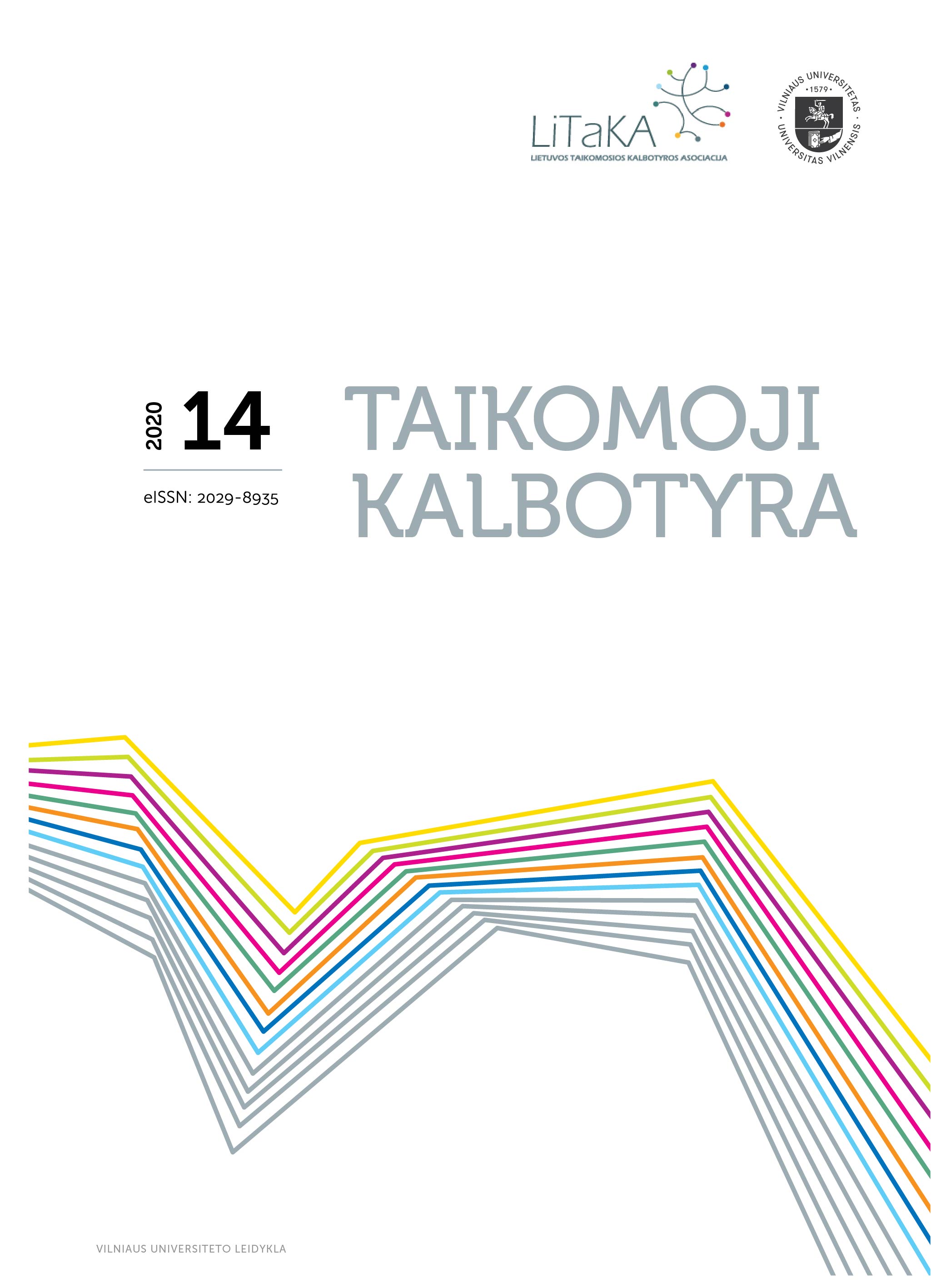Lietuvių kalbos žargono priesaginių prieveiksmių morfologinė adaptacija: Priesagos -ai hibridiniai vediniai iš būdvardžių su priesaga -iškas ir nepriesaginių būdvardžių
Morphology Features of the Suffixal Slang Adverbs in the Lithuanian Language: Hybrid Suffixcal Derivatives -ai formed from the Suffixal Adjectives -iškas and from the Primary Adjectives
Author(s): Robertas KudirkaSubject(s): Language and Literature Studies, Morphology
Published by: Vilniaus Universiteto Leidykla
Keywords: word formation; adverbs; slang; slang hybrids;
Summary/Abstract: This article is one part of the research of adverbs in Lithuanian slang. Although there is no systematic and comprehensive research into the Lithuanian language slang, slang is commonly believed to be chaotic and have no grammatical system. The purpose of this article is to morphologically examine the derivatives formed with suffix -ai from the adjectives with suffix -iškas and from the primary adjectives without suffixes. The material (79 adverbs) is collected from the dictionary of Lithuanian slang and the dictionary of non-standard Lithuanian. The study aims to identify the systematic morphological features. To achieve the aim the research words are classified according to their suffixes, their origin is determined and morphological analysis is performed.The research reveals that a foreign language unit that emerges in the context of another language undergoes assimilation - it is transformed in one way or another by adapting it to the linguistic system. In Lithuanian slang, adverbs with the suffix -ai are mostly made up from hybrid adjectives of Russian origin with the suffix -iškas. There is also a number of adverbs formed from English hybrid adjectives. A few are derived from semantically neologic adjectives. The majority of suffixal -ai derivatives that are formed from primary adjectives are Russian origin. Adverbs which are derived from the adjectives with the suffix -iškas always retain the accent in the root: this pattern is common to all slang adverbs. All forms of adverbial degrees have accented suffixes. The findings of the research reveal that the morphological features of the studied slang adverbs have undergone certain transformations and follow the regularities of the Lithuanian language system: the slang adverbs copy derivative models of the standard language.
Journal: Taikomoji kalbotyra
- Issue Year: 2020
- Issue No: 14
- Page Range: 21-32
- Page Count: 12
- Language: Lithuanian

